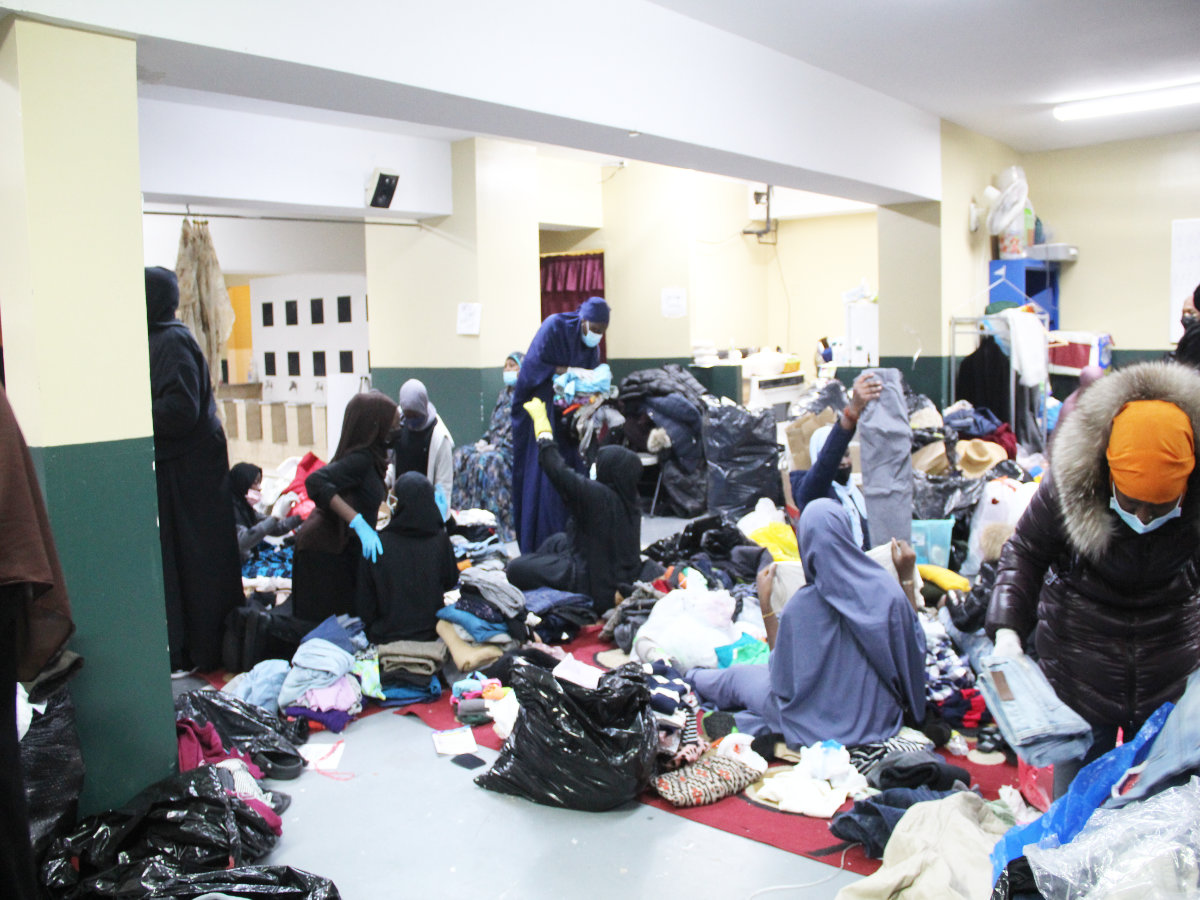NEW YORK: Members of the Muslim community in the Bronx area of New York, where many Muslim-Americans died in an apartment building fire on Jan. 9, have mobilized their efforts to help residents with support and donations.
At least 17 Muslim-Americans of West African origin died in the fire, eight of whom were under the age of 18. Their Islamic funeral service will be held on Jan. 16 at the Islamic Cultural Center of the Bronx.
“The smoke alarms were going off, but nobody really took it seriously because they go off all the time, so nobody knows when it’s an actual emergency,” Bintou Kamara, 14, told Arab News.
Bintou, who studies at Harlem Prep High School, has lived at the building, 333 East 181st Street, with her family since an early age.

Front view of 333 East 181st Street in the Bronx, New York. (Supplied)
She and her family initially thought the fire was coming from an adjacent apartment building until they started hearing cries for help and sirens.
“We heard people yelling for help. We saw firefighters, so we realized it was our house,” Bintou said.
“We took a scarf and waved outside, yelling, ‘Help, help!’ It took them like an hour or two to get to us. We were on the 12th floor.”
Fire officials said that a malfunctioning electric space heater had started the fire.
“Sometimes the heat is on, other times it’s off. That’s why everybody in this building has a heater,” Bintou told Arab News.
“People don’t want to freeze. It’s winter. It’s cold. I have a heater in my room. My mom has a heater. Everybody has a heater. If the building just provided heat, if they were just doing what they were supposed to do, none of this would’ve happened.”
According to New York fire officials, the flames did not spread through the entire building. Instead, thick black smoke engulfed the stairways and seeped into apartments, blocking the only fire escape and causing several deaths and hospitalizations.
Fire Commissioner Daniel Nigro told local media that an apparent malfunction of the doors in front of the building and on the 15th floor caused the smoke to spread quickly throughout the building.
Nigro said that the apartment’s front door and a door on the 15th floor should have been self-closing and blunted the spread of smoke, but the doors stayed fully open. It was not clear if the doors failed mechanically or if they had been manually disabled.
But malfunctions within the apartment building were not uncommon, residents told Arab News. Fatoumatta Kamara, Bintou’s older sister, said that among the issues they faced were leaky sinks, peeling paint and pests.

The Kamara family apartment on the 12th floor of 333 East 181st Street in the Bronx, New York. Signs of struggle during the fire are seen. (Supplied)
“Usually, when you tell the landlord something, it’s either not fixed properly or it damages quickly or they don’t come until after a while, so you have to repeatedly continue to file for the same complaint on certain issues of the household,” Fatoumatta, a 19-year-old student at Fordham University, said. Eventually, after tiring of long waits, the family would make repairs themselves, she said.
Nearly a week after the fire, many families are still living in a hotel or with relatives, with little communication from the building’s landlord. Lawyers for the families of the victims filed a class-action lawsuit seeking $1 billion in compensation from the building owners and city and state officials.
Despite having several issues in the apartment where the fire took place, Bintou and Fatoumatta expressed fondness for the community they built over the years.
The 120-unit building is occupied by predominantly low-income communities of various backgrounds, some of whom are Muslim immigrants with West African roots. The building sits within a 15-mile radius of several mosques, which began mobilizing immediately to help the residents of the building.

Muslim women gather to organize donated clothes and distribute them to victims of the fatal Bronx fire at Masjid Al-Rahama in the Bronx, New York. (Supplied)
Directly outside Masjid Ar-Rahman, a nearby mosque, several cars were double-parked late into Thursday night. Inside the mosque, volunteers huddled over hundreds of donated items — toiletries, snacks, and clothing for men, women and children — sorting them into different bags.
“After we sort through them, we have family members of people who live in the building come in to pick up any new items immediately, and we’ve also been sending some to the hotels,” Jenabu Simaha, 24, said.
Masjid Taqwa, another mosque in the area, collected monetary donations for the families, and Masjid Al-Fawzaan assigned a drop-off location for donations. Many of the items are new.
“What’s given us a lot of solace is the community,” Simaha said. “Not only the Muslim community but the Bronx community as well. We’ve been having so many different volunteers and community members within this area who’ve been coming in and providing support.”
















